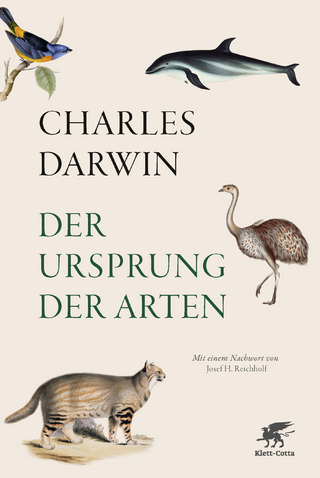
Power, Sex, Suicide
Oxford University Press (Verlag)
978-0-19-883190-7 (ISBN)
Mitochondria are tiny structures located inside our cells that carry out the essential task of producing energy for the cell. They are found in all complex living things, and in that sense, they are fundamental for driving complex life on the planet. But there is much more to them than that.
Mitochondria have their own DNA, with their own small collection of genes, separate from those in the cell nucleus. It is thought that they were once bacteria living independent lives. Their enslavement within the larger cell was a turning point in the evolution of life, enabling the development of complex organisms and, closely related, the origin of two sexes. Unlike the DNA in the nucleus, mitochondrial DNA is passed down exclusively (or almost exclusively) via the female line. That's why it has been used by some researchers to trace human ancestry daughter-to-mother, to 'Mitochondrial Eve'. Mitochondria give us important information about our evolutionary history. And that's not all. Mitochondrial genes mutate much faster than those in the nucleus because of the free radicals produced in their energy-generating role. This high mutation rate lies behind our ageing and certain congenital diseases. The latest research suggests that mitochondria play a key role in degenerative diseases such as cancer, through their involvement in precipitating cell suicide.
Mitochondria, then, are pivotal in power, sex, and suicide. In this fascinating and thought-provoking book, Nick Lane brings together the latest research findings in this exciting field to show how our growing understanding of mitochondria is shedding light on how complex life evolved, why sex arose (why don't we just bud?), and why we age and die. This understanding is of fundamental importance, both in understanding how we and all other complex life came to be, but also in order to be able to control our own illnesses, and delay our degeneration and death.
Oxford Landmark Science books are 'must-read' classics of modern science writing which have crystallized big ideas, and shaped the way we think.
Nick Lane is a British biochemist and writer. He was awarded the first Provost's Venture Research Prize in the Department of Genetics, Evolution, and Environment at University College London, where he is now Professor of Evolutionary Biochemistry. Professor Lane's research deals with evolutionary biochemistry and bioenergetics, focusing on the origin of life and the evolution of complex cells. He was a founding member of the UCL Consortium for Mitochondrial Research, and is leading the UCL Research Frontiers Origins of Life programme. He was awarded the 2011 BMC Research Award for Genetics, Genomics, Bioinformatics and Evolution, and the 2015 Biochemical Society Award for his sustained and diverse contribution to the molecular life sciences and the public understanding of science. His books include Oxygen: The Molecule that Made the World (OUP, 2002; 2016).
Introduction: Mitochondria: Clandestine Rulers of the World
Part 1: Hopeful Monster: The Origin of the Eukaryotic Cell
1: The Deepest Evolutionary Chasm
2: Quest for a Progenitor
3: The Hydrogen Hypothesis
Part 2: The Vital Force: Proton Power and the Origin of Life
4: The Meaning of Respiration
5: Proton Power
6: The Origin of Life
Part 3: Insider Deal: The Foundations of Complexity
7: Why Bacteria are Simple
8: Why Mitochondria Make Complexity Possible
Part 4: Power Laws: Size and the Ramp of Ascending Complexity
9: The Power Laws of Biology
10: The Warm-Blooded Revolution
Part 5: Murder or Suicide: The Troubled Birth of the Individual
11: Conflict in the Body
12: Foundations of the Individual
Part 6: Battle of the Sexes: Human Pre-History and the Nature of Gender
13: The Asymmetry of Sex
14: What Human Prehistory Says About the Sexes
15: Why There Are Two Sexes
Part 7: Clock of Life: Why Mitochondria Kill us in the End
16: The Mitochondrial Theory of Ageing
17: Demise of the Self-Correcting Machine
18: A Cure for Old Age?
Epilogue
Glossary
Further Reading
Index
| Erscheinungsdatum | 15.10.2018 |
|---|---|
| Reihe/Serie | Oxford Landmark Science |
| Zusatzinfo | 14 line drawings and halftones |
| Verlagsort | Oxford |
| Sprache | englisch |
| Maße | 158 x 199 mm |
| Gewicht | 483 g |
| Themenwelt | Kunst / Musik / Theater ► Allgemeines / Lexika |
| Sachbuch/Ratgeber ► Natur / Technik | |
| Naturwissenschaften ► Biologie ► Evolution | |
| Naturwissenschaften ► Biologie ► Zellbiologie | |
| ISBN-10 | 0-19-883190-0 / 0198831900 |
| ISBN-13 | 978-0-19-883190-7 / 9780198831907 |
| Zustand | Neuware |
| Informationen gemäß Produktsicherheitsverordnung (GPSR) | |
| Haben Sie eine Frage zum Produkt? |
aus dem Bereich


